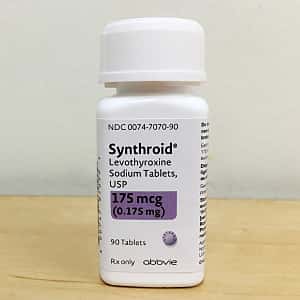
If you have an underactive thyroid gland, you know how important it is to take your thyroid pills on a regular basis. You may have even heard that you should not take your levothyroxine (Euthyrox, Levothroid, Levoxyl, Synthroid, Unithroid) with coffee. But what about other medications? One reader wondered about heartburn medicine.
Will a PPI Interfere With Absorption of Thyroid Pills?
Q. I have been taking a PPI daily for many years to treat Barrett’s esophagus. During all that time, I have been struggling with symptoms of low thyroid activity, even though I take my thyroid pills conscientiously. My TSH is elevated and my doctor keeps increasing my dose of levothyroxine. Do you have any suggestions?
A. There is a strong likelihood that the PPI (proton pump inhibitor) you are taking for acid reflux is interfering with absorption of your thyroid medicine (Clinical Drug Investigation, March 2015).
Maximizing Absorption of Thyroid Pills:
There are two possible solutions to this problem. First, your gastroenterologist could find a different way to treat the Barrett’s esophagus. Alternately, your doctor could prescribe a soft-gel form of levothyroxine (Tirosint). Unfortunately, Tirosint can be pricey if your insurance does not cover it.
In addition to proton pump inhibitors such as esomeprazole (Nexium), lansoprazole (Prevacid) or omeprazole (Prilosec), certain other medicines may interfere with thyroid pills. Specifically, iron, calcium and estrogen can lead to elevated TSH (Clinical Endocrinology, Jan. 2015).
Learn More:
You can learn more about this and other interactions with levothyroxine in our eGuide to Thyroid Hormones. You may also wish to listen to our most recent interview on treating thyroid problems. It is Show 1196: What to Do If Thyroid Treatment Doesn’t Work for You. In addition, Show 1179: What Should You Do About Digestive Distress? has information on treating Barrett’s esophagus.
Citations
- Trifiro G et al, "Drug interactions with levothyroxine therapy in patients with hypothyroidism: Observational study in general practice." Clinical Drug Investigation, March 2015. DOI: 10.1007/s40261-015-0271-0 [Indexed for MEDLINE]
- Irving SA et al, "Drugs that interact with levothyroxine: an observational study from the Thyroid Epidemiology, Audit and Research Study (TEARS)." Clinical Endocrinology, Jan. 2015. DOI: 10.1111/cen.12559

